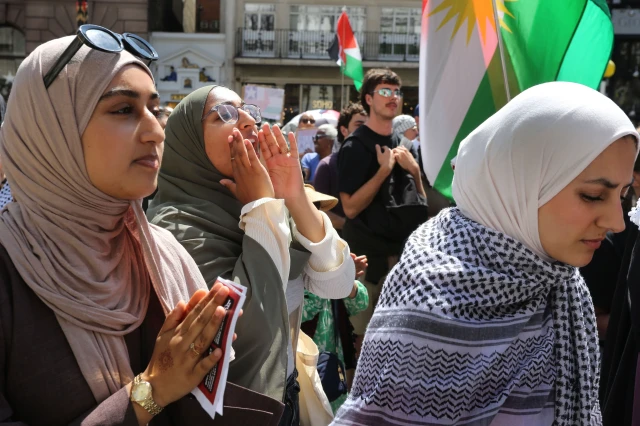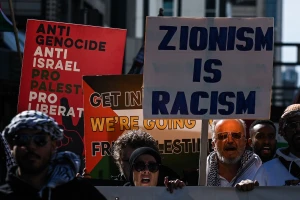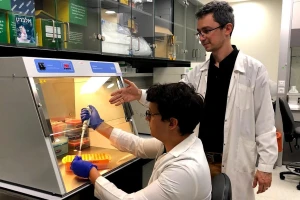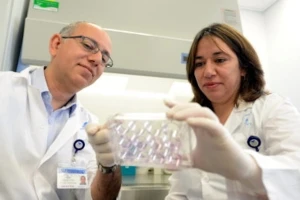British Medical Association cuts ties with Israeli counterpart, sparking fears of global boycotts

The British Medical Association (BMA) has officially suspended ties with the Israeli Medicine Association (IMA) over its unwillingness to condemn IDF strikes on hospitals in Gaza, according to Ynet. Israeli health officials have expressed concerns that the move could trigger further boycotts, resulting in isolation for Israeli doctors worldwide.
At the annual BMA conference held in Liverpool this year, 80% of delegates supported the resolution, voting in favor of the boycott and making it official BMA policy. It is not yet clear what the practical ramifications of the resolution will be, or how it will be implemented.
The IMA is now hoping to influence the outworking of the resolution through diplomatic means, warning that the development could result in the exclusion of Israeli doctors from academic exchanges, conferences and professional collaborations in the UK. However, IMA chairman, Prof Zion Hagai, noted that the UK was just one country among many.
“We are not dependent on the British. The IMA is tied to the World Medical Association (WMA), not to one of its 120 members,” he said. However, he also expressed concern about other countries potentially following suit. “This is a declarative step that could encourage other countries to adopt similar measures. We're trying to prevent that first domino from falling.”
“The IMA represents doctors and upholds professional standards. While some BMA members may have political biases, we’ll present our truth. Should it be accepted – very well. If not, we’ll continue without them,” insisted Hagai.
At BMA’s annual representatives meeting (ARM) in Belfast last year one in ten of all motions submitted by delegates referred to Gaza, with 75 mentions of Israel. One example in the Telegraph proposed the BMA “condemns in the strongest terms the systematic destruction of hospitals in Gaza and the killing of more than 1,000 healthcare workers since October 7, 2023, as grave violations of international law and an affront to medical neutrality.”
The Jewish Medical Association (JMA) prepared Jewish attendees to be ready for a ‘hostile atmosphere’ and to ‘expect to encounter a mix of overt antisemitism, bullying, harassment and flag-waving activism’, according to medical news outlet, Pulse.
In the climate of growing antisemitism, Jewish doctors have reported feeling “intimidated, unsafe and excluded” at the annual conference, raising concern that the conference was becoming a “vehicle for Jew hatred” according to the Daily Telegraph.
Like many others, Prof. Hagai traces the notable rise in antisemitism to the events following Oct. 7. He reported that some Israeli doctors were disinvited from conferences where they had been scheduled to speak. The UK delegation moved to pass a resolution accusing Israel of war crimes in April last year, but the attempt was staved off. “We ultimately reached an understanding and avoided a formal condemnation, but this latest vote marks an unprecedented escalation,” he said.
“We’re working behind the scenes, talking to organizers and explaining why a boycott of Israel is the wrong path,” he said, explaining that the media focus on the suffering in Gaza has negatively impacted support for Israel even among traditional allies.
Dr. Fareed Al-Qusous, a British doctor of Jordanian descent, told YNet, “As physicians, our duty is to ensure the protection of patients and medical facilities. Medical neutrality applies to both Israelis and Palestinians.”
Al-Qusous, 26, pointed out that the IMA condemned the Iranian attack on Israel’s Soroka Medical Center but not those on hospitals in Gaza. “We must be consistent. Any attack on a hospital is reprehensible. Because the IMA was silent on Gaza, I voted in favor of suspending ties.”
He condemned the Hamas attack of Oct. 7 and expressed his wish for the hostages to be returned. “But what is happening to Palestinians is also a tragedy. Violence doesn’t justify more violence,” he said.
“As a doctor, I care about the humanitarian side. I hope both Israel and Hamas are held accountable for their actions and that the people of Gaza receive the aid they desperately need,” he said, adding, “this is a suspension, not a permanent severing of ties. If the IMA commits to medical neutrality, the relationship can be restored.”
The BMA has suspended ties until the IMA affirms the principle of medical neutrality and condemns attacks on Gaza’s healthcare system, but some have suggested that Israel should be expelled from the World Medical Association altogether. Hagai, who serves on the WMA council, has said the IMA is committed to advocating for Israel internationally and is in regular contact with medical organizations around the world. “We act in accordance with international law,” he said. “There is no justification for cutting ties with us.”
The IMA plans to send a delegation to the UK to meet with their British counterparts in the hope of dialogue and the defusing of the situation.
“We’ve asked to come. We want to present our side before irreversible decisions are made,” Hagai explained. “We’ll show our compliance with international law and our commitment to treating even Gaza militants who were brought into Israeli hospitals after October 7.”

Jo Elizabeth has a great interest in politics and cultural developments, studying Social Policy for her first degree and gaining a Masters in Jewish Philosophy from Haifa University, but she loves to write about the Bible and its primary subject, the God of Israel. As a writer, Jo spends her time between the UK and Jerusalem, Israel.
You might also like to read this:










